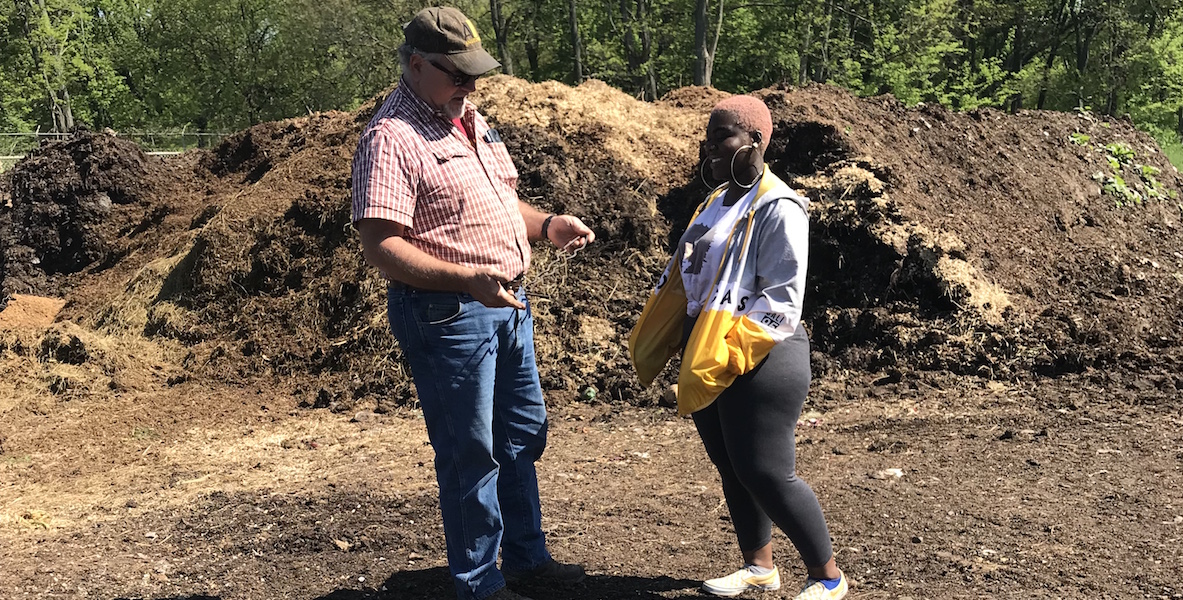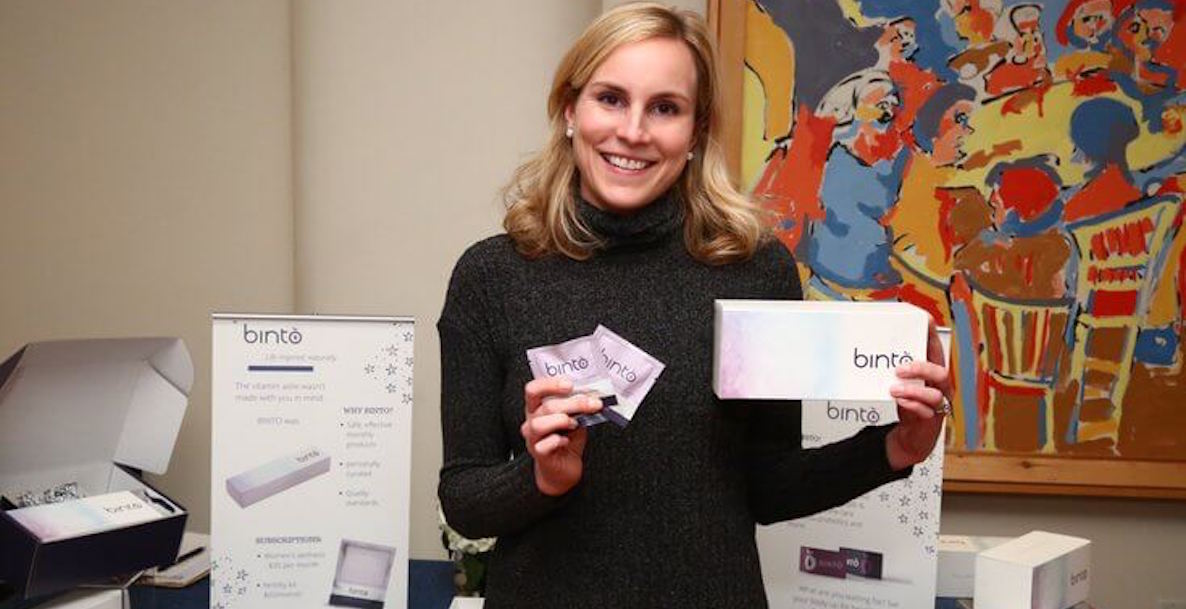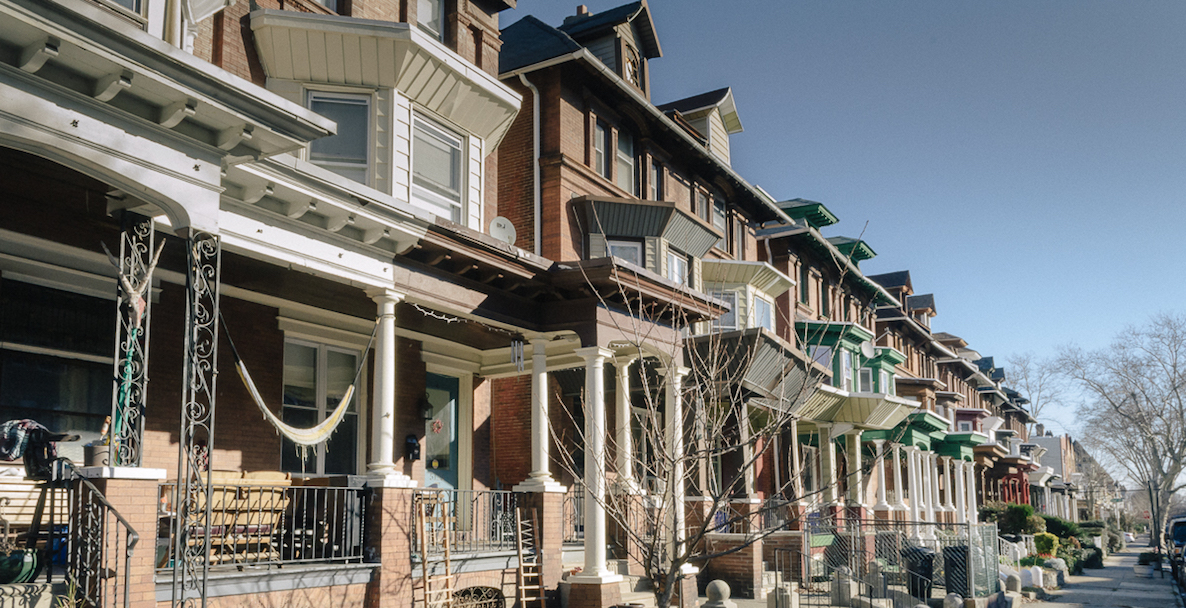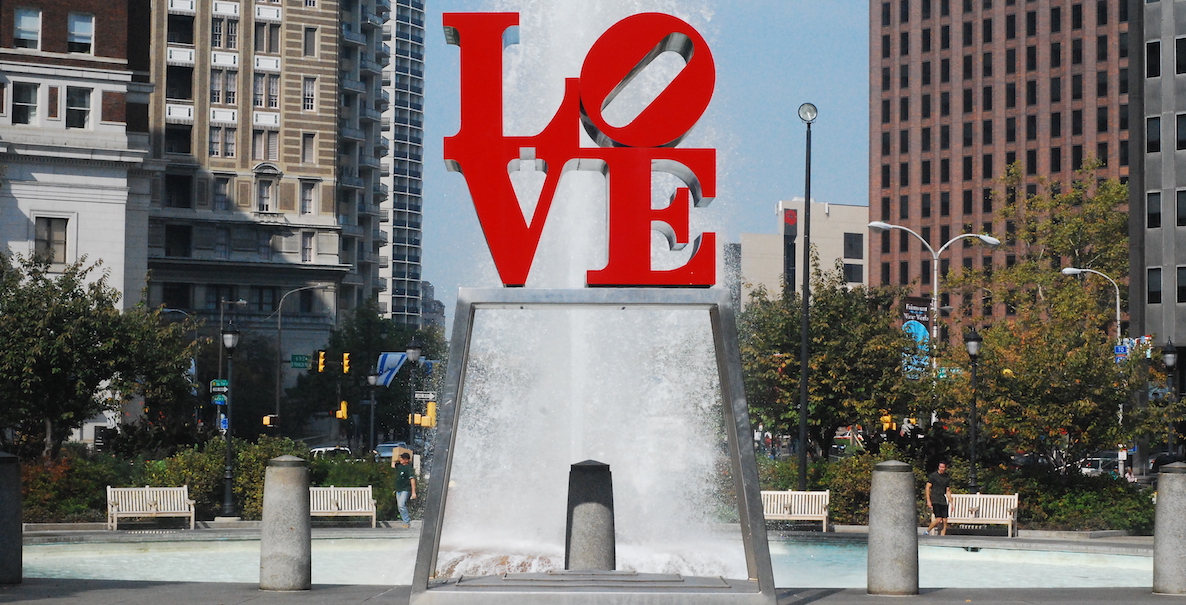Albert Bandy, who is now 40, spent half of his life within the walls of SCI Graterford Prison. He was only 18 years old when he was incarcerated, and though released fewer than two years ago, he is now a married man with three stepdaughters and a son, and is a research assistant at Temple University. He has a Bachelor’s degree from Villanova University—earned while at Graterford—and is in all respects a reintegrated contributor to society.
He gives much of the credit for his quick transition into life and academic work to PAR-Recycle Works, a nonprofit launched in 2016 that provides transitional employment for just released inmates.
“After serving 20 years of incarceration and not knowing what to expect, having a plan but not knowing how to implement the plan, I was blessed to be able to have employment a month out,” explains Bandy. “It gave me a sense of agency. It was an opportunity for me to land on my feet.”
PAR-Recycle Works teaches participants to break down old electronics—laptops, computer monitors, window AC units, phones—donated by partners and townships. Then the organization sells the resulting scrap metal—aluminum, steel, silver, copper—to metal processors, which helps pay PAR-Recycle employees. Some 65 percent of funding for the program comes from this revenue, while the other 35 percent comes from charitable organizations such as the William J. Dowdy Foundation. The program serves approximately 10 people at a time, with 33 people having participated over the last two and a half years.
“There are 7,000 people coming home from prisons and jails to the city of Philadelphia every year,” Maurice Jones, the nonprofit’s Operations Manager, explains. “70 percent are going to return to prisons or jails in the first three years. But, 90 percent of those with jobs won’t recidivate.”
Nationally, somewhere between 60 and 75 percent of those released from prison or jail are still unemployed a year after rejoining society, and studies repeatedly find that a criminal record means you’re significantly less likely to receive a call back from an employer or be offered a job.
These troubling statistics pushed the organization’s board members, at the time volunteers of a peer-to-peer mentoring group called People Advancing Reintegration inside the prison—PAR—to start Recycle Works in 2016. President George Limbach says that the leadership of PAR, made up of inmates serving life sentences, was frustrated that despite their efforts at providing returning citizens with budgeting and decision making skills, they weren’t making an impact on participants’ recidivism. “People have a lot of needs when they come out, emotional and otherwise,” explains Limbach. “But basically if they can’t get employment, nothing else matters.”
Employees tend to stay with Recycle Works for six to nine months before moving on to permanent employment. Of 33 participants in the program, only one has been rearrested.
Board members searched high and low in their networks for employers willing to hire out of their group, but struggled to convince business connections to buy in. Then, with the inmates’ encouragement, they decided they may have to start a company of their own. In looking for a model, they found RecycleForce in Indianapolis, which operates much under the same premise as Recycle Works but at a much larger scale, and realized they could replicate it. “It’s kind of hard to find jobs fresh out, so let’s create our own,” Jones explains of the group’s mindset. “And that’s how we were born.”
“We spent a few months building up the infrastructure and building up our courage because we had never done this before,” says Limbach. “We really started with two guys and a workbench.”
In addition to creating jobs for returning citizens, Recycle Works does its best to create a sense of community for them. “When they get out they’re very isolated,” explains Limbach. “We explore things with them, we give them support. Employees have told us this has helped with their healing and integration.”
Stories from Jill HarkinsRead More
Jones, a returning citizen himself who spent time at SCI Smithfield Prison, knows firsthand the need for such a sense of community. He was denied parole the first time he was up for it because of a lack of community ties, and ended up building those necessary ties with a teacher he had met while taking college classes at the Curran-Fromhold Correctional Facility. The teacher and her husband—who is actually Limbach—agreed to take Jones in were he to be released, and formally adopted him several years ago.
Jones now oversees day-to-day operations at Recycle Works and is currently attending Temple’s Fox School of Business. He joined the organization in 2016 when it launched, drawn to the position by a craving to serve others. “I honestly feel like I’ve been called to advocate or give voice to a population that needs to be heard,” he says. “If not us, then who?”
Employees tend to stay with Recycle Works for six to nine months before moving on to permanent employment. The nonprofit has several employer partners, including scrap metal buyer S.D. Richman Sons, Pret A Manger, and property management group Odin Properties, where graduates of the program are often hired. Whether a participant chooses to pursue a position with a partner or elsewhere, Jones stays in touch with them over the next year or so to check in and offer support.
According to the EPA, 142,000 computers and 416,000 cell phones are thrown away daily. In 2014, only 42 percent of “e-waste,” which also includes TVs, tablets, and all of the other things Recycle Works deals with, was recycled.
Though the sample size is still quite small, Recycle Works’ participants have an even better track record than those who are released and obtain employment elsewhere. Of the 33 participants over the lifetime of the program, only one has been rearrested—approximately three percent.
The nonprofit recruits at job fairs, as well as via several partner organizations that also serve formerly incarcerated individuals, such as the Philadelphia Youth Network and CareerLink. Jones says that while they’re looking to provide people with much needed support, they also don’t hire just anyone, and there is an interview process. “We want to be selective in who we are bringing in,” says Jones, who grew up in the Germantown neighborhood of Philadelphia. “This is a hand-up, not a hand-out.”
Donate your electronicsDo Something
Reducing recidivism in Philadelphia has been on nonprofit radars for the past several years, and the Philadelphia Reentry Coalition is currently working to reduce first-year recidivism in the city, currently 33 percent, to 25 percent by 2020, largely with the help of organizations like PAR-Recycle Works.
This effort will of course help individuals reentering society, but it also could help everyone’s checkbook: housing and feeding an inmate in Pennsylvania costs taxpayers an average of $34,700 annually, a total of $1.78 billion for the state’s more than 50,000 inmates.
While criminal justice is at the forefront of Recycle Works’ efforts, environmental sustainability falls close behind. According to the EPA, 142,000 computers and 416,000 cell phones are thrown away daily. In 2014, only 42 percent of “e-waste,” which also includes TVs, tablets, and all of the other things Recycle Works deals with, was recycled. “We don’t want these electronics falling into trash or landfills,” says Jones. Individuals can drop off donations to the organization’s Center City office, or pay a fee—between $25 and $75 depending on distance—to have them picked up from their homes.
Jones, though, is in the business for the individual impact PAR-Recycle Works can have on people who need it most. “We measure our success through the success of our participants, our employees. They are changing their lives and their family’s lives and their communities,” he explains.
“Individuals are looking for hope. We offer a bit of hope and a bit of change in the way people think of themselves and the way people think about those returning home. Not everyone is incorrigible. People can change.”










